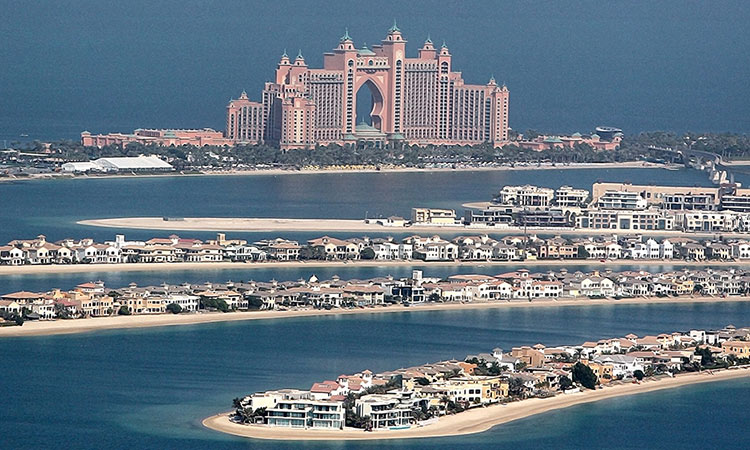[ad_1]

With its breathtaking views of Palm Jumeirah, Dubai is an attractive destination for local and global tourists.Kamal Qasim / Gulf Today
Michael Bolliger, chief investment officer for emerging markets at UBS Global Wealth Management, said he expects the UAE’s economy to grow by more than 5 percent in 2022.
In an interview with the Emirates News Agency (WAM), Bollinger said the UAE’s economy will grow by 3.8% in 2021, thanks to appropriate government incentives and programmes and vaccination of all citizens and residents, noting that the non-oil sector will see growth in this period. also played an important role in the economic recovery.
All indices, including the Purchasing Managers’ Index (PMI) and Business Confidence Index (BCI), showed that after a good start to the year, growth in the non-oil sector remained strong, with the country’s GDP rising by 8.2%. He added that by the first quarter of 2022, oil-related GDP will grow by 13%, in line with the relevant OPEC+ agreement.
He further added that the increase in real income levels in the UAE, due to rising wages and employment rates, has helped to support local demand, thus strengthening the country’s wholesale, retail and real estate sectors.
The transport, tourism and hospitality sectors have also seen a solid recovery over the past period as tourist arrivals and hotel occupancy rates have risen, Bollinger said, noting that the rapid recovery from the COVID-19 pandemic and the non-oil sector highlighted the UAE’s economic diversification.
He highlighted that the Gulf Cooperation Council (GCC) economies will grow by 6.4% in 2022 and 3.4% in 2023. He noted that the global economy has entered a downward trend, with US GDP falling 0.9% in the second quarter of 2022, as recession fears intensify, while fears of a recession in Europe are rising.
Inflation remains a major concern for monetary policymakers around the world, and current inflation dynamics do not leave much room for central banks to ease restrictive policies. “We believe the Fed will continue to raise rates to 100 basis points by the end of 2022,” he concluded.
Private sector employees: The number of private sector employees in the UAE increased by 9% in the second quarter of 2022 compared to the same period last year, the Ministry of Human Resources and Emiratisation (MoHRE) said in its private sector workforce report on Wednesday.
It added that as of the end of the second quarter, the total number of private sector employees registered in the MoHRE database was 5,376,842.
Khalil Al Khoori, MoHRE’s Acting Deputy Minister for Human Resources, said: “The increase in the private sector workforce is in line with the significant growth of the UAE’s economy. This is also in line with the government’s policies to strengthen the country’s position and active role in the international economic ecosystem and Strategic moves, and numerous reports from international economic organizations underscore this.”
He noted that the results reaffirmed the competitiveness of the UAE’s job market, which “has nurtured a rich human resource capable of supporting the country’s economic diversification in line with strategic growth plans.”
“The increase in the total workforce in the private sector reflects the attractiveness of the UAE job market as a global destination for competence and expertise. We will continue to strengthen the legislative framework for the job market with a focus on protecting the rights of employees and employers,” he said.
The report shows that MoHRE issued 537,974 new work permits in the second quarter of 2022, a 27% increase from the second quarter of 2021. On the other hand, in the second quarter of 2022, the number of work permit cancellations decreased by 8%, compared with the first quarter of 2021, when the number of cancellations was 301,569.
The report’s findings also showed that construction accounted for the largest share of new work permits issued by MoHRE in the second quarter of 2022, followed by business services, trade and maintenance services, manufacturing, and hotels and restaurants.
Of the total MoHRE-registered private sector workforce, construction accounts for 26%, trade and maintenance services 21%, and business services 19%.
Compared to the second quarter 2021 results, the agricultural sector saw the largest increase in the number of new work permits issued at 70%, followed by social and personal services at 62%, business services at 44% and financial services at 43% .
Meanwhile, construction contracts in the emirate were worth more than AED 2.1 billion in the first half of 2022, up from the same period of the previous two years, according to a report by the Ajman Municipal and Planning Department.
WAM
[ad_2]
Source link